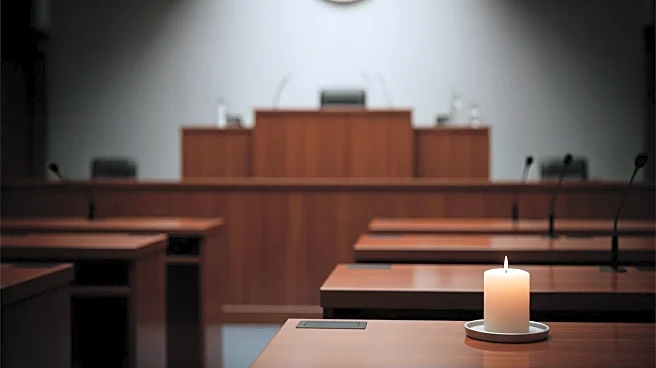What's Happening?
A federal appeals court has ruled against President Trump's tariffs, stating that he overstepped his authority by using emergency powers to impose these import taxes. The court's decision highlights that the International Emergency Economic Powers Act does not authorize the tariffs implemented by Trump earlier this year. The ruling emphasizes that the power to impose taxes, including tariffs, is a core Congressional power granted by the Constitution to the legislative branch. Despite the ruling, the tariffs remain in place temporarily, as the court has delayed the implementation of its order until October, allowing the Trump administration time to appeal to the Supreme Court. President Trump has defended his tariffs as essential to national and economic security, while critics argue that the decision underscores limits on presidential powers.
Why It's Important?
The court's decision has significant implications for U.S. trade policy and the balance of power between the executive and legislative branches. If the tariffs are ultimately blocked, it could disrupt ongoing trade negotiations and impact relationships with international trading partners. The ruling may also influence future presidential actions regarding economic policy, reinforcing the need for Congressional approval in matters of taxation. The decision could lead to diplomatic challenges and potential retaliation from other countries, affecting U.S. economic interests and global trade dynamics. The outcome of this legal battle may set a precedent for how emergency powers are interpreted in the context of economic policy.
What's Next?
The Trump administration plans to appeal the decision to the Supreme Court, seeking to uphold the tariffs. This legal battle is expected to continue, with potential implications for ongoing trade negotiations and international relations. The administration's appeal will likely focus on defending the use of emergency powers for economic security. Meanwhile, foreign leaders reviewing trade terms with the U.S. may require additional clarity on the legal status of Trump's tariffs, potentially delaying negotiations. The outcome of the appeal could have lasting effects on U.S. trade policy and the scope of presidential authority in economic matters.








